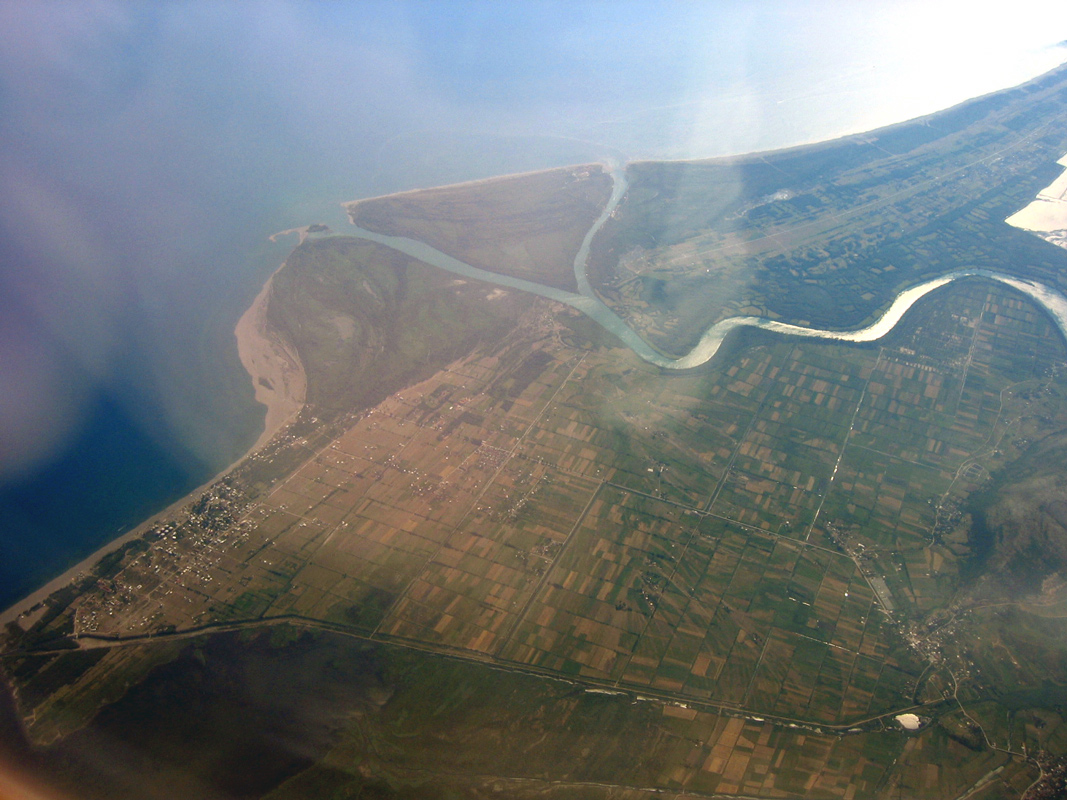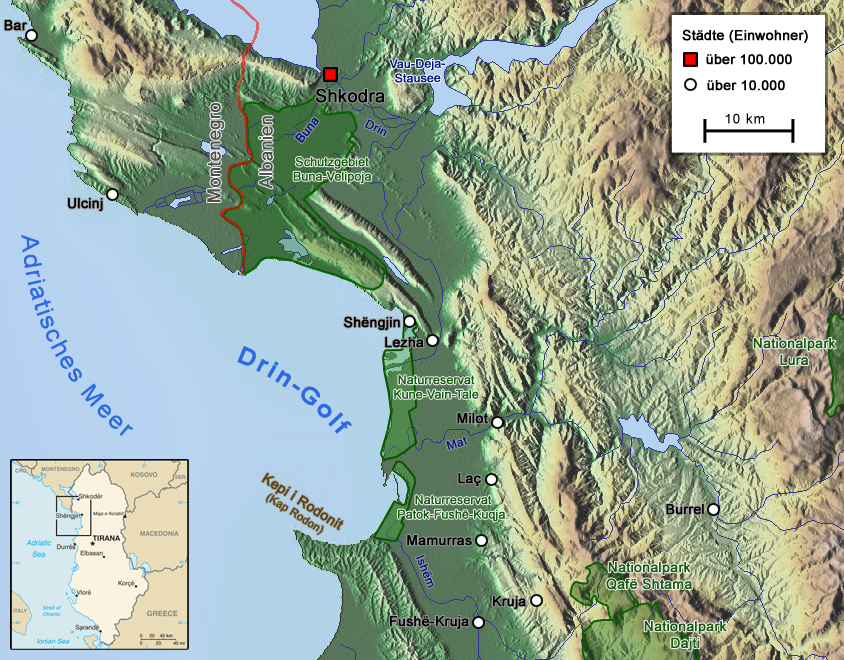|
Lazër Shantoja
Lazër Shantoja (7 July 1891 – 5 March 1945) was an Albanian blessed, publicist, poet, satirist, and translator into Albanian from Goethe, Schiller and Leopardi, as well as his country's first Esperantist. He was one of the first Catholic priests, arrested by the communist government, and the first Albanian priest that was shot by a firing squad. He was accepted by the Catholic Church as a martyr in 2016, part of the Martyrs of Albania. Life Shantoja was born on July 7, 1891 (although some biographers mention also September 2, 1892 as birthday) in Shkodër, Scutari Vilayet, then Ottoman Empire, son of Kel Shantoja and Luçe Blinishti. In his manuscript ''Shantojana - History of the Shantoja family'' he writes that his family originates from ''Vjerdha e Vjetër'', a settlement close to Rragam, in the Shkodër County. Shantoja pursued elementary and high school studies at the Albanian Pontifical Seminary in Shkodër, and then, during 1912 - 1914, was in Innsbruck, Austria-Hung ... [...More Info...] [...Related Items...] OR: [Wikipedia] [Google] [Baidu] |
Beatification
Beatification (from Latin ''beatus'', "blessed" and ''facere'', "to make”) is a recognition accorded by the Catholic Church of a deceased person's entrance into Heaven and capacity to intercede on behalf of individuals who pray in their name. ''Beati'' is the plural form, referring to those who have undergone the process of beatification; they possess the title of "Blessed" (abbreviation "Bl.") before their names and are often referred to in English as "a Blessed" or, plurally, "Blesseds". History Local bishops had the power of beatifying until 1634, when Pope Urban VIII, in the apostolic constitution ''Cœlestis Jerusalem'' of 6 July, reserved the power of beatifying to the Holy See. Since the reforms of 1983, as a rule, one miracle must be confirmed to have taken place through the intercession of the person to be beatified. Miracles are almost always unexplainable medical healings, and are scientifically investigated by commissions comprising physicians and theologia ... [...More Info...] [...Related Items...] OR: [Wikipedia] [Google] [Baidu] |
Martyrs Of Albania
The Martyrs of Albania were a collective group of 38 individuals killed during the Communist regime in Albania from 1945 until 1974 (all but five between 1945 and 1950). All were born at various times between 1874 and 1935; the group included Albanians and Italians as well as one German. Each of these individuals, apart from four, were part of the religious life as either priests or religious and served as either missionaries or educators with a great deal spending their educational formation in Italian and Austrian cities. The beatification cause opened in 2002 and the group were beatified on 5 November 2016. Life Background The 38 individuals were all murdered during the Communist regime between the end of World War II in 1945 until 1974 (mostly between 1945 and 1950. They included 2 bishops as well as 21 diocesan priests and 7 from the Order of Friars Minor. There were also 3 Jesuits and 1 seminarian killed in addition to 4 of the general faithful. There was one single woman ... [...More Info...] [...Related Items...] OR: [Wikipedia] [Google] [Baidu] |
Chancellor Of Austria
The chancellor of the Republic of Austria () is the head of government of the Republic of Austria. The position corresponds to that of Prime Minister in several other parliamentary democracies. Current officeholder is Karl Nehammer of the Austrian People's Party (ÖVP), who was sworn in on 6 December 2021 following the resignations of Sebastian Kurz and Alexander Schallenberg, of the same party, as party leader and Chancellor. All three leaders formed a government with the Green Party, the first coalition between these two parties at the federal level. Brigitte Bierlein was the Second Republic's first , forming a nonpartisan caretaker government between a vote of no confidence in Kurz's first government in June 2019 and the formation of his second in January 2020. The chancellor's place in Austria's political system Austria's chancellor chairs and leads the cabinet, which is composed of the chancellor, the vice chancellor and the ministers. Together with the president, who ... [...More Info...] [...Related Items...] OR: [Wikipedia] [Google] [Baidu] |
Lazër Mjeda
Lazër Mjeda (1869–1935) was an Albanian prelate of the Roman Catholic Church, and a member of the Mjeda family. Biography Lazër (Llazar) Mjeda was born in Shkodër, Ottoman Empire — present-day Albania — on March 6, 1869. From 1900 to 1904 he was the Bishop of the Roman Catholic Diocese of Sapë, while from 1905 to 1909 he was the Archbishop of the Roman Catholic Diocese of Shkodër. During this time, the Catholic Church also made him the Titular Archbishop for the Diocese of Areopolis. From mid 1909 till late 1921, Mjeda was the Archbishop of the Diocese of Skopje. From 1921 he was the Archbishop of the Roman Catholic Archdiocese of Shkodër-Pult. Mjeda was member of the literary society Society for the Unity of the Albanian Language ( sq, Shoqnia e Bashkimit të Gjuhës Shqipe,Bashkimi i Shkodrës), creator of ''Bashkimi'' alphabet, one of the main Albanian alphabets discussed in the Congress of Monastir The Congress of Manastir ( sq, Kongresi i Manastirit) was ... [...More Info...] [...Related Items...] OR: [Wikipedia] [Google] [Baidu] |
Velipojë
Velipojë ( sq-definite, Velipoja) is a village and a former municipality in Shkodër County, northwestern Albania. At the 2015 local government reform it became a subdivision of the municipality Shkodër. The population at the 2011 census was 5,031.2011 census results 
 Velipojë is situated on the estuary of the Bojana (river), Buna river (the only navigable river of Albania), where it flows into the Adriatic Sea while constituting the natural border with Monte ...
Velipojë is situated on the estuary of the Bojana (river), Buna river (the only navigable river of Albania), where it flows into the Adriatic Sea while constituting the natural border with Monte ...
[...More Info...] [...Related Items...] OR: [Wikipedia] [Google] [Baidu] |
Beltojë
Beltojë is a settlement in the former Bërdicë municipality, Shkodër County, northern Albania. At the 2015 local government reform it became part of the municipality Shkodër Shkodër ( , ; sq-definite, Shkodra) is the fifth-most-populous city of the Republic of Albania and the seat of Shkodër County and Shkodër Municipality. The city sprawls across the Plain of Mbishkodra between the southern part of Lake Shkod .... Notable People * Hamza Bey Kazazi - Albanian rebel leader and Patriot of the 19th century. References Bërdicë Populated places in Shkodër Villages in Shkodër County {{Shkodër-geo-stub ... [...More Info...] [...Related Items...] OR: [Wikipedia] [Google] [Baidu] |
Esperanto
Esperanto ( or ) is the world's most widely spoken constructed international auxiliary language. Created by the Warsaw-based ophthalmologist L. L. Zamenhof in 1887, it was intended to be a universal second language for international communication, or "the international language" (). Zamenhof first described the language in '' Dr. Esperanto's International Language'' (), which he published under the pseudonym . Early adopters of the language liked the name ''Esperanto'' and soon used it to describe his language. The word translates into English as "one who hopes". Within the range of constructed languages, Esperanto occupies a middle ground between "naturalistic" (imitating existing natural languages) and ''a'priori'' (where features are not based on existing languages). Esperanto's vocabulary, syntax and semantics derive predominantly from languages of the Indo-European group. The vocabulary derives primarily from Romance languages, with substantial contributions from Ge ... [...More Info...] [...Related Items...] OR: [Wikipedia] [Google] [Baidu] |
German Language
German ( ) is a West Germanic languages, West Germanic language mainly spoken in Central Europe. It is the most widely spoken and Official language, official or co-official language in Germany, Austria, Switzerland, Liechtenstein, and the Italy, Italian province of South Tyrol. It is also a co-official language of Luxembourg and German-speaking Community of Belgium, Belgium, as well as a national language in Namibia. Outside Germany, it is also spoken by German communities in France (Bas-Rhin), Czech Republic (North Bohemia), Poland (Upper Silesia), Slovakia (Bratislava Region), and Hungary (Sopron). German is most similar to other languages within the West Germanic language branch, including Afrikaans, Dutch language, Dutch, English language, English, the Frisian languages, Low German, Luxembourgish, Scots language, Scots, and Yiddish. It also contains close similarities in vocabulary to some languages in the North Germanic languages, North Germanic group, such as Danish lan ... [...More Info...] [...Related Items...] OR: [Wikipedia] [Google] [Baidu] |
Italian Language
Italian (''italiano'' or ) is a Romance language of the Indo-European language family that evolved from the Vulgar Latin of the Roman Empire. Together with Sardinian, Italian is the least divergent language from Latin. Spoken by about 85 million people (2022), Italian is an official language in Italy, Switzerland (Ticino and the Grisons), San Marino, and Vatican City. It has an official minority status in western Istria (Croatia and Slovenia). Italian is also spoken by large immigrant and expatriate communities in the Americas and Australia.Ethnologue report for language code:ita (Italy) – Gordon, Raymond G., Jr. (ed.), 2005. Ethnologue: Languages of the World, Fifteenth edition. Dallas, Tex.: SIL International. Online version Itali ... [...More Info...] [...Related Items...] OR: [Wikipedia] [Google] [Baidu] |
Vienna
en, Viennese , iso_code = AT-9 , registration_plate = W , postal_code_type = Postal code , postal_code = , timezone = CET , utc_offset = +1 , timezone_DST = CEST , utc_offset_DST = +2 , blank_name = Vehicle registration , blank_info = W , blank1_name = GDP , blank1_info = € 96.5 billion (2020) , blank2_name = GDP per capita , blank2_info = € 50,400 (2020) , blank_name_sec1 = HDI (2019) , blank_info_sec1 = 0.947 · 1st of 9 , blank3_name = Seats in the Federal Council , blank3_info = , blank_name_sec2 = GeoTLD , blank_info_sec2 = .wien , website = , footnotes = , image_blank_emblem = Wien logo.svg , blank_emblem_size = Vienna ( ; german: Wien ; ba ... [...More Info...] [...Related Items...] OR: [Wikipedia] [Google] [Baidu] |
Austria-Hungary
Austria-Hungary, often referred to as the Austro-Hungarian Empire,, the Dual Monarchy, or Austria, was a constitutional monarchy and great power in Central Europe between 1867 and 1918. It was formed with the Austro-Hungarian Compromise of 1867 in the aftermath of the Austro-Prussian War and was dissolved shortly after its defeat in the First World War. Austria-Hungary was ruled by the House of Habsburg and constituted the last phase in the constitutional evolution of the Habsburg monarchy. It was a multinational state and one of Europe's major powers at the time. Austria-Hungary was geographically the second-largest country in Europe after the Russian Empire, at and the third-most populous (after Russia and the German Empire). The Empire built up the fourth-largest machine building industry in the world, after the United States, Germany and the United Kingdom. Austria-Hungary also became the world's third-largest manufacturer and exporter of electric home appliances, ... [...More Info...] [...Related Items...] OR: [Wikipedia] [Google] [Baidu] |




